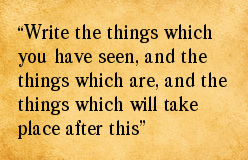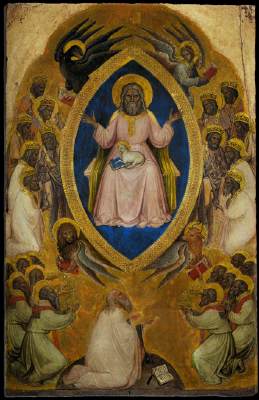Jewish Roots Evidence for a Futurist Interpretation of the Book of Revelation

Introduction
I am a believer in the concept of biblical patterns and double or even multiple fulfillments of prophecy. The destruction of the Temple on the 9th of Av, 586 BC and again on the 9th of Av, AD 70 evidence the pattern-like nature of God’s dealings.
Still, prophecies usually have one “more literal” fulfillment (e.g., Isaiah 7:14). So it is possible to examine a verse, see how it was fulfilled somewhat near to the prophecy, but then see a fuller fulfillment in the future. Thus the Book of Revelation can have several fulfillments, one that is past, one that is ideological and not tied to particular dates, and one that is somewhat more literal, sequential, and tied to the End Times. Thus the “Futurist” approach to Revelation is not necessarily mutually exclusive, but is, I believe, primary.
Does Jewish literature leave us an example, a clue for interpreting Revelation 4-19 in particular? Although many of us tie this period to Daniel’s 70th seven (Daniel 9:25ff), others see it otherwise. So what evidence is there—outside of the Bible proper—that suggests understanding Revelation 4-19 as an expansion and detailed account of the coming seven-year world tribulation? Glad you asked.
Discussion
Interview with C. Marvin Pate, Author of "Reading Revelation"
[amazon 0825433673 thumbnail]
Last week I posted my review of Reading Revelation: A Comparison of Four Interpretive Translations of the Apocalypse, by C. Marvin Pate. This week Dr. Pate has agreed to answer some questions about his new book.
Dr. Pate teaches at Ouachita Baptist University in Arkadelphia, Arkansas where he is the Department Chair for Christian Theology and the Elma Cobb Professor of Christian Theology. Previous to teaching, Dr. Pate was a pastor at which time he earned his MA from Wheaton and his PhD from Marquette University.
Dr. Pate has spent a lifetime of writing books on eschatology some of which include: The End of the Age has Come: The Theology of Paul; Four Views on the Book of Revelation (contributor); Dictionary of Biblical Prophecy; End Times (contributor); and Doomsday Delusions: What’s Wrong with Predictions About the End of the World.
Share with us what started your interest in eschatology.
Two events drew me to eschatology, both of which occurred when I was 14 years old. First, on a hot July Monday evening in Hampton, Virginia (where I was raised) two U.S. fighter jets collided over the Atlantic Ocean in a practice maneuver and one crashed into the ocean but the other crashed one block from where I lived, in a crowded neighborhood. When it happened, the sky became red, the ground shook, and the noise was deafening. Not knowing what had happened, I thought Jesus was returning! That night made an indelible impression on me about the end of the world and the second coming of Christ. Second, I preached my first sermon at the age of 14, the same summer the jet crashed and my topic was—you guessed it—the second coming of Christ, based on Matthew 24. And so my interest began that summer and intensified in the years to come. I attended Moody Bible Institute as a student and embraced there dispensational pre-millennialism. But later at Wheaton Graduate School I embraced historical pre-millennialism and have pretty much held that position ever since; though technically I call my approach now “eclectic”.


Discussion